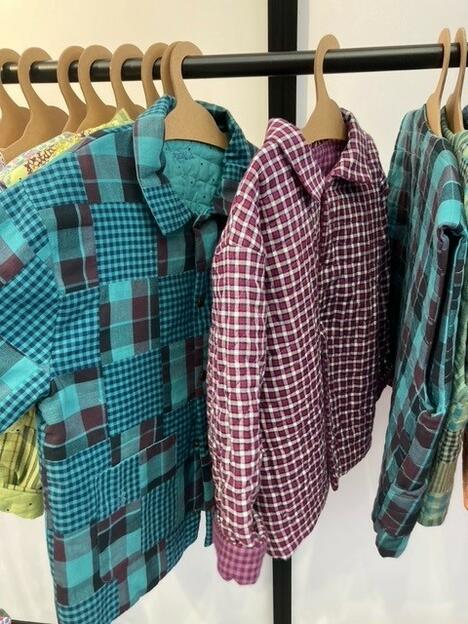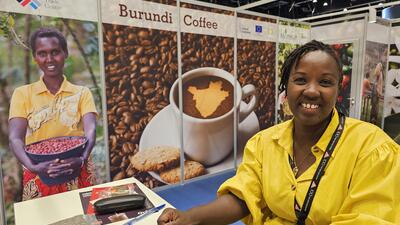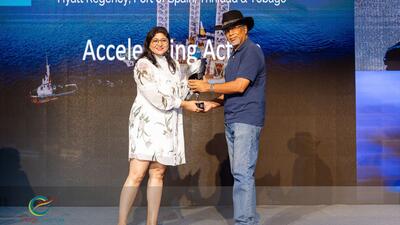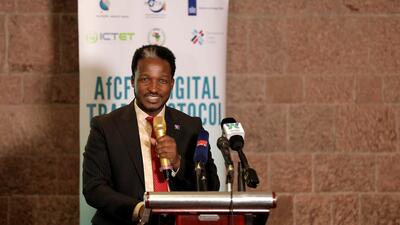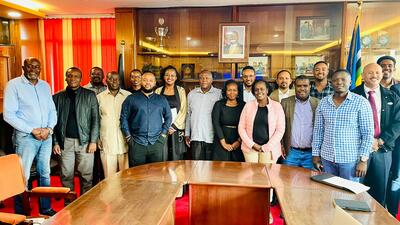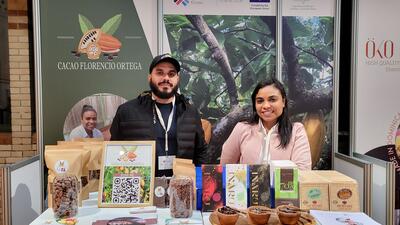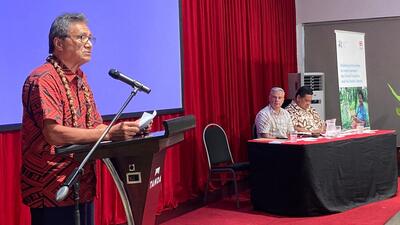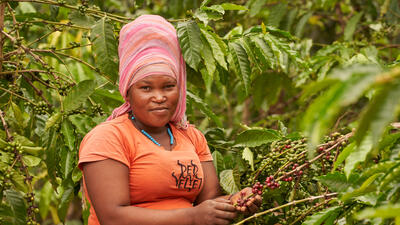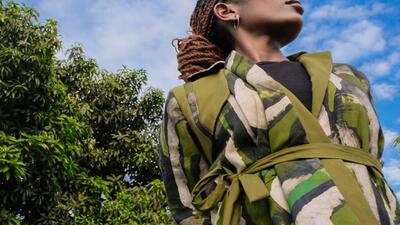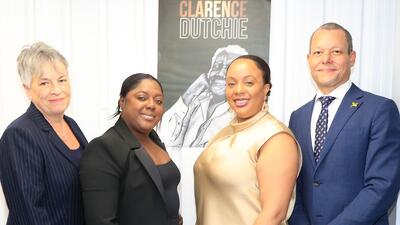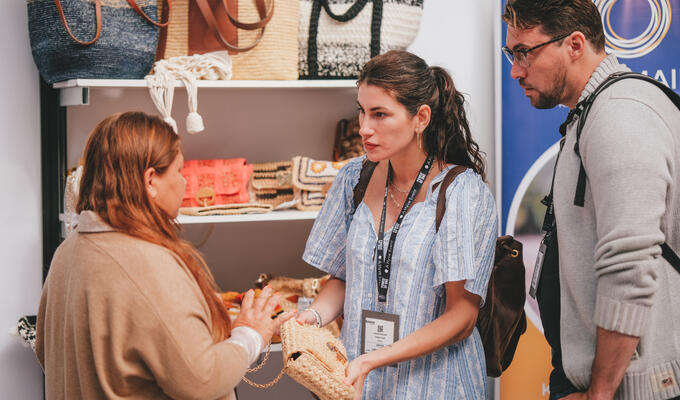
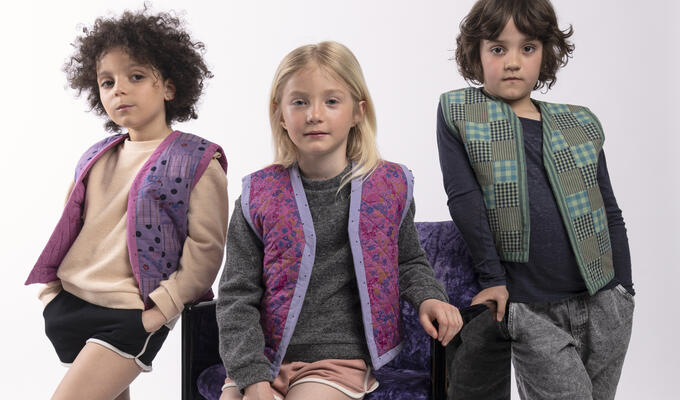
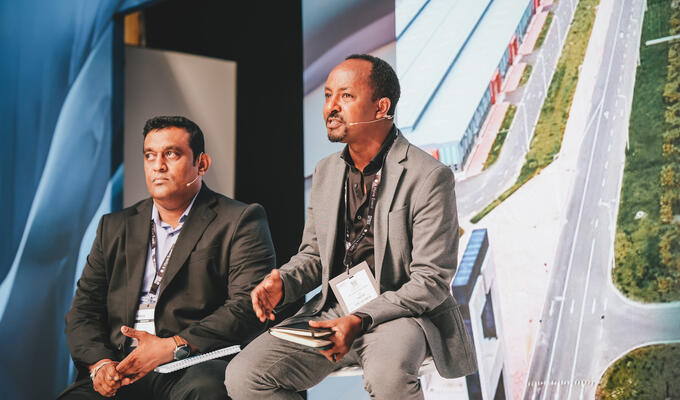
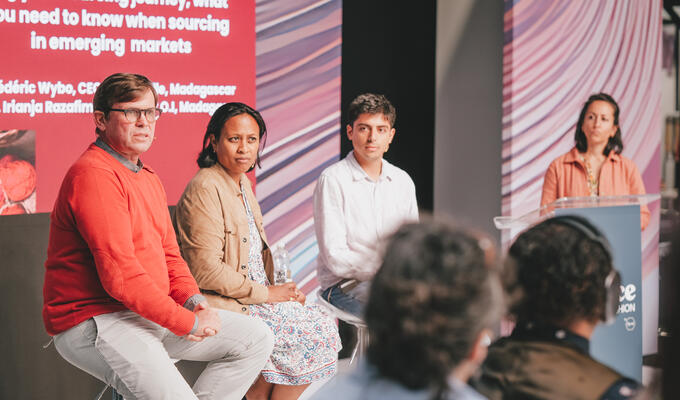
Ethiopian and Malagasy fashion take stage at responsible sourcing show
Source Fashion launched this year in London, to connect European buyers with sustainable fashion brands that care as much about what goes into garments as about the people who make them.
That ethos aligns with goals of the International Trade Centre (ITC), which brought 12 small and medium-sized enterpreises (SMEs) from Ethiopia and Madagascar to display upcycled clothing, eco-friendly manufacturing, and dynamic designs.
‘Our goal is to foster sustainable practices while enhancing the international competitiveness of SMEs. The remarkable achievements of both Madagascar and Ethiopia at Source Fashion fair exemplify our mission,’ said Matthias Knappe, head of fibres, textiles, and clothing at ITC.
The Ethiopian and Malagasy businesses were among 300 exhibitors from 30 countries at the event, which ran 16-18 July 2023 at the historic Olympia London event hall.
Fashion companies in least developed countries often struggle to break into international markets. Source Fashion provides a unique platform for African designers and producers to connect with buyers in the United Kingdom, Europe and the rest of the world.
Source Fashion wants to gather manufacturers from around the world with retailers and designers who are looking for responsibly and sustainably sourced products. Thousands of buyers and procurement teams registered for the exhibition this year.
ITC organised three information sessions during the show. Two highlighted Madagascar and Ethiopia as new sourcing destinations. A third session focused on the UK Government’s Developing Country Trading Scheme (DCTS), which was launched on 19 June 2023 and offers 100% duty-free access and generous rules of origin.
The Madagascar-based companies — Ultramaille, L.O.I. Confection, Anaka, Azala, Index OI and General Garment — showcased new fabrics and designs, from traditional embroideries to modern, bespoke patterns.
The Ethiopian exhibitors included Sunshine Ethiopia Wool Textile, Desta, Isabella Socks Manufacturing, Demka and JP Textile.
Commitment to the environment
Under the UK Trade Partnership programme's Resource Efficiency and Circular Production component, Malagasy small businesses have undergone a transformative journey towards greener practices.
‘Our sustainable practices not only reflect our commitment to the environment but also align with what discerning clients seek,’ said Chabina Meraly, CEO of L.O.I. ‘By embracing the principles of ITC's UKTP programme, we've not only become more sustainable but also more attractive to potential business partners. This journey is just the beginning, as we continue to innovate and pave the way for a more sustainable future in the fashion industry.’
L.O.I. stands out for its commitment to greener operations and its innovative approach to sustainability. With LED lighting, solar panels, and advanced waste management, the company is not only reducing its environmental footprint but also catching the attention of UK retail leaders seeking responsible manufacturing partners.
Malagasy and Ethiopian companies were able to attend this year with the support of UKaid and the UKTP programme, in collaboration with German Development Cooperation and the jointly funded Sustainable Industrial Cluster in Ethiopia.
Exhibiting at Source Fashion has helped companies like Index IO grow from subcontractors to full-scale exporters of high-end clothing for children and adults.
‘The presence of UK government representatives to brief us about DCTS was very encouraging. It helped to strengthen our future effort to work with UK buyers. The focus on Ethiopia as an emerging sourcing destination has also helped increase the international visibility of Ethiopian manufacturers,’ said Hibret Lemma, CEO of the Hawassa Industrial Park Investors Association in Ethiopia.
The new ‘Made in Ethiopia’ pavilion showcased the country’s apparel and fabrics, made with a commitment to environmentally conscious practices. As the country explores innovative alternatives, such as leather alternatives and plant-based fabrics, it paves the way for a future where fashion is not only stylish but also eco-friendly.
‘Thanks to UKTP support, we benefited from several coaching sessions with a local fashion and garment expert who helped us to map potential UK clients and establish contacts before the show,’ said Sofiane Bouhali, founder of Azala. ‘It helped us a lot in better identifying our target clients and how to better position our company.’
About the United Kingdom Trade Partnerships Programme
The United Kingdom Trade Partnerships (UKTP) Programme, funded by the Foreign, Commonwealth & Development Office (FCDO) of the United Kingdom of Great Britain and Northern Ireland, aims to increase trade from developing countries to the United Kingdom (UK) and the European Union (EU) by maximizing the benefits of UK and EU Economic Partnership Agreements (EPAs) and the UK's Developing Countries Trading Scheme (DCTS). The UKTP Programme works in partnership with government agencies, private sector organisations, public sector institutions, small and medium-sized enterprises and other local stakeholders.
About the Sustainable Industrial Clusters
The British and German governments are supporting Ethiopia’s pathway towards industrialization through the implementation of a joint project named Sustainable Industrial Clusters (S.I.C.). The project is implemented under the umbrella of the German Development Cooperation by the Deutsche Gesellschaft für Internationale Zusammenarbeit (GIZ) GmbH with a co-financing agreement between the Foreign, Commonwealth & Development Office (FCDO) of the United Kingdom and the German Federal Ministry for Economic Cooperation and Development (BMZ). The project has the objective of fostering job-effective growth while improving social and environmental sustainability in Ethiopia’s manufacturing sector.




